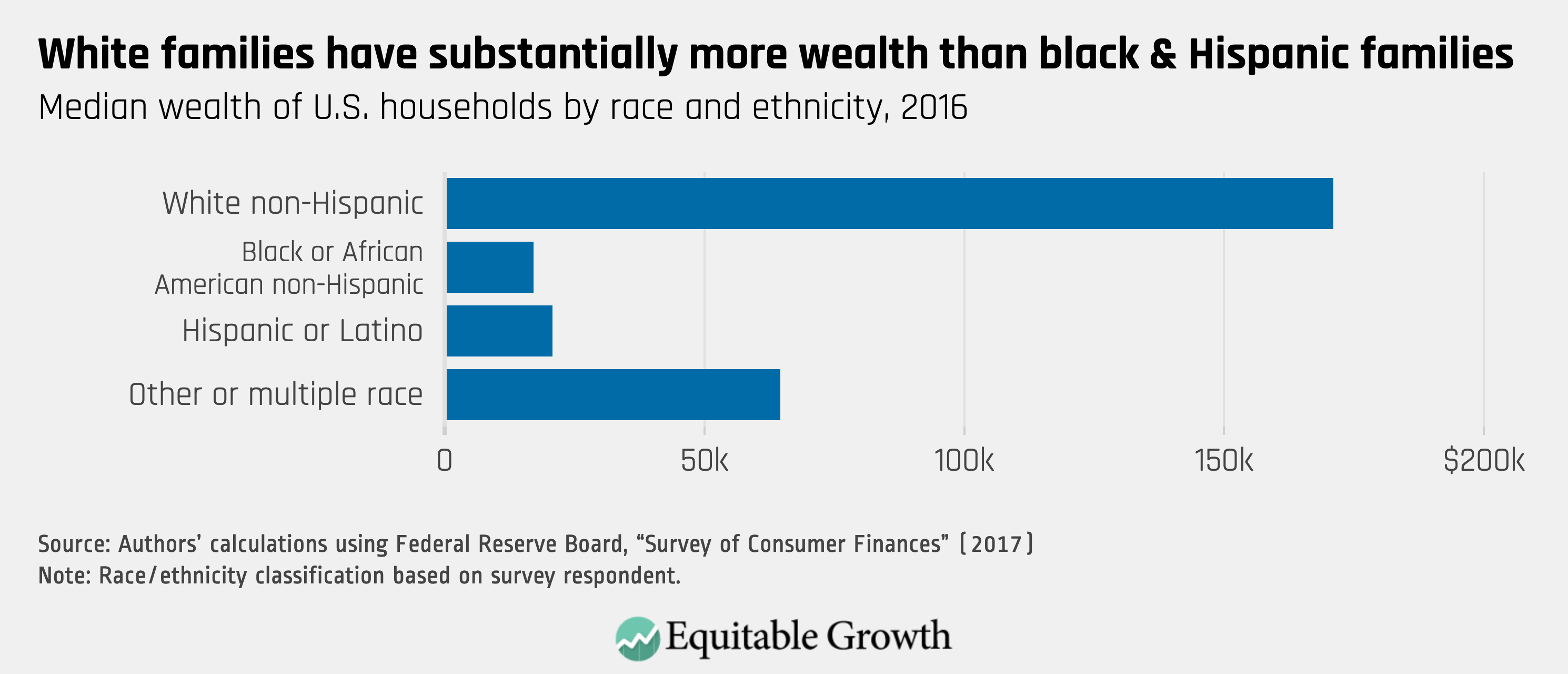Weekend reading: “Inequality” edition
This is a weekly post we publish on Fridays with links to articles that touch on economic inequality and growth. The first section is a round-up of what Equitable Growth published this week and the second is the work we’re highlighting from elsewhere. We won’t be the first to share these articles, but we hope by taking a look back at the whole week, we can put them in context.
Equitable Growth round-up
Equitable Growth’s Heather Boushey released a statement on behalf of the organization following the passing of Alan Krueger. The statement highlighted Krueger’s belief that economics—and economists—should advance knowledge and serve people and how he helped make economics less about theory and more about maximizing its benefits for all.
Equitable Growth’s Greg Leiserson, Will McGrew, and Raksha Kopparam released their issue brief that provides an overview of the distribution of wealth in the United States to inform discussion of a potential net worth tax. The issue brief includes a series of figures that break down what the distribution of income and wealth in the United States looks like across wealth quintiles and what types of demographics are feeling the benefits of such wealth.
Alix Gould-Werth broke down newly released research from Equitable Growth grantees Joan C. Williams and Susan Lambert. Their research looked at how retail workers’ unpredictable schedules can impact their sleep quality. The research found that by improving the quality of workers’ schedules, workers slept more soundly and were more productive.
In recognition of Women’s History Month, Equitable Growth compiled some of the work we’ve published over the past few years on the role women play in the workplace and the U.S. economy. Pieces highlighted included Paid family and medical leave in the United States: A research agenda and Gender wage inequality.
Brad DeLong rounds up his latest worthy reads on equitable growth from both inside and outside Equitable Growth.
Elisabeth Jacobs and Kate Bahn discuss how the female labor force participation rate in the United States has changed over time and how this rate correlates to a country’s per capita Gross Domestic Product. The two note that U.S. women’s labor force participation, unlike that of other countries, has been on the decline since around 2000, and they call for policies like paid family leave, expanded access to childcare, and scheduling stability to help curb the decline.
Links from around the web
What is economic inequality exactly? Susannah Snider describes it as the gap between the income and wealth amassed by different groups in a society, describing the exponential growth in wealth disparities between the richest Americans compared to the rest of the country over the past five decades. She goes on to describe how economic inequality affects everyday folks, with working class families being unable to weather small financial setbacks or even beginning to build wealth. [usnews]
There have been lots of recent proposals for how to go about taxing the wealthiest people in the United States. Dylan Matthews breaks down recent proposals from Alexandria Ocasio-Cortez, Elizabeth Warren, Bernie Sanders, and others, discusses the historical background of taxes on the wealthy, and breaks down how taxing the rich can be hard in practice. Matthews pulls from some of the ideas of Equitable Growth grantees including Gabriel Zucman, Stefanie Stantcheva, and David Kamin. [vox]
Data shows that low-income students who attend top-tier universities earn close to what their wealthy classmates go on to earn. Yet the advantages of legacy admissions exacerbate inequality by denying admission for low-income students. Richard Reddick breaks down how opportunity hoarding in the college admissions process compounds economic inequality. [houstonchronicle]
Christian Weller proposes that only bold policy interventions can begin to shrink the racial wealth gap that persists in our country. Specifically, Weller maintains that we cannot just focus on income, but must also take a close look at ways to quickly close the racial wealth gap by enacting policies such as reparations. [forbes]
Alan Krueger’s work in the Obama White House propelled economic inequality into the mainstream, coining the term the “Great Gatsby Curve” that helped solidify the idea that income inequality is a serious harm. Dylan Matthews writes how Krueger’s popularization of the relationship of income inequality for everyday Americans created a new dialogue between lawmakers—one that is sure to continue on for years to come. [vox]
Friday Figure

Figure is from Equitable Growth’s “The distribution of wealth in the United States and implications for a net worth tax”

